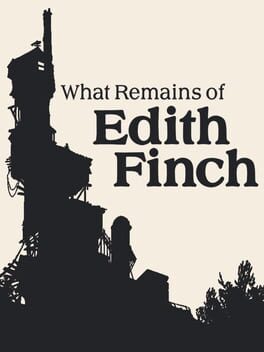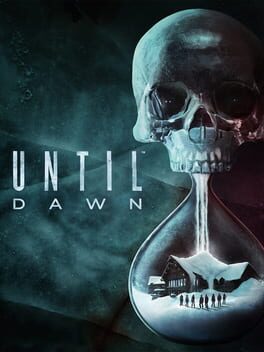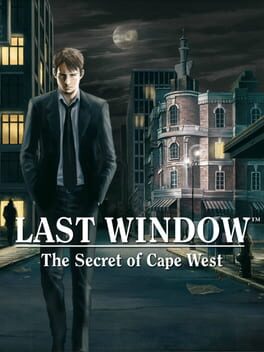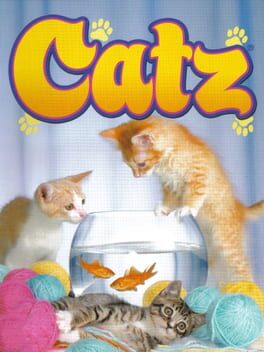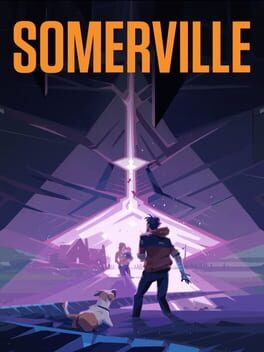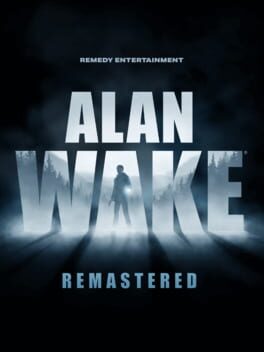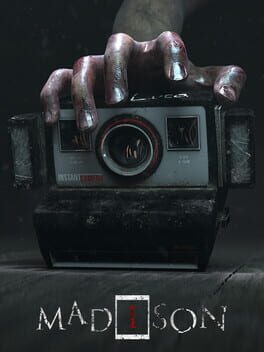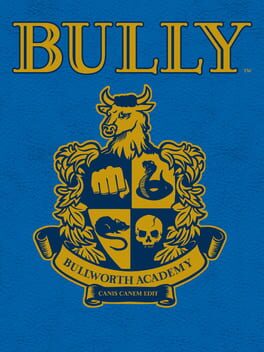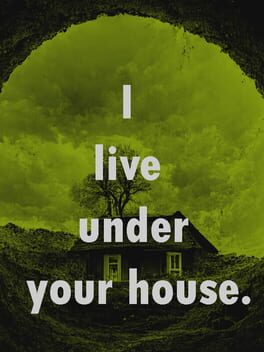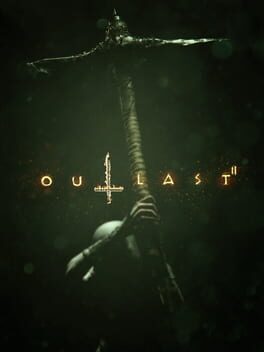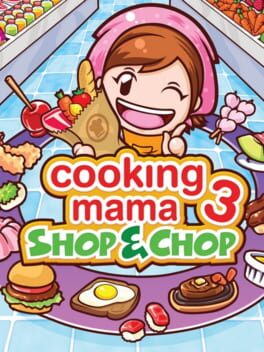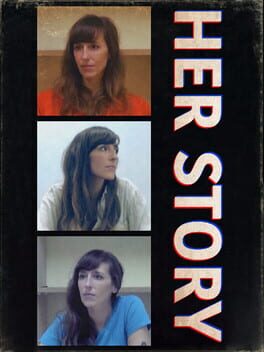Hal_Incandenza
19 Reviews liked by Hal_Incandenza
When you grow up having a tumultuous relationship with your parents, houses become distorted. Creaking floorboards and door handles, rustling keyholes, deep sighs and stares, tones of voice. All signals your brain receives as alarms. Danger. Be quiet. Poke your head into the hallway, but don't be seen. Rest your ear in the door and listen closely. Don't come out.
The house the Finch family lived in is empty, but also isn't. There's no one here, but some things remained. Their favorite things: be they toys, trophies, or photos. Their history is embedded into every wall of the house, sometimes even their deaths are etched into its architecture.
I have lived in many places throughout my life, unlike the Finch family. But still, things remained. I look back to all the houses I've lived in and yet everything feels the same, because I remember what remained. Because it followed me to every house. It lives in the creaking floorboards and rustling keyholes. It lives in the stares and the sighs. Because a house, a home, is not just somewhere you live in. It transcends the physical plane and becomes something much more abstract and hard to explain. I feel like I have always lived in the same house, even though that's not the case. They begin to blend in my mind as a towering structure constructed by memories that feel too familiar.
When you're a kid, the relationship between your parents and grandparents can seem a little whimsical. But when you start growing up, you begin to see the cracks. You see the lies, you see the fighting, and little kid tears just can't fix it anymore. And eventually, the big fight breaks out and you choose a side. Things change forever. You start to learn more of the history of your mom's life. You learn about the abuse, and of the things that remained and eventually escalated into this new reality you've been trust into.
And as time goes by, things get worse. And when things get worse, you start to see what remained with your own eyes, because it's happening to you. The fighting, the screaming, the belittling. Except you're not the observer anymore.
You try getting tough. You also begin to lie and scream and fight.
You try to make distance. To avoid small talk or eye contact all together.
You think you're gonna be different, that you won't be like that.
But you start doing this with the wrong people. To people you love and care about. And this is where the "curse" is born. It takes form out of that cyclical abuse and begins to seep into everything you do. It molds your life into a nightmare and you become convinced. You start to believe there is a curse, that this is how it's gonna play out no matter what. That how you are is predestined: if everyone else couldn't beat it, how could you? The curse takes a hold of you. And it won't let go.
But something eventually happens. There's a change for the better. Maybe life at home is better, we who remain start working out the issues, maybe we find solace in others and we start to realize it doesn't have to be like this. It never had to be.
Our life doesn't have to be dictated by who our parents are, who they think we have to be, or any stupid "curse". The cycle can be broken, be it by our parents or us. And when we break it, what matters is what we leave behind. What remains.
The house the Finch family lived in is empty, but also isn't. There's no one here, but some things remained. Their favorite things: be they toys, trophies, or photos. Their history is embedded into every wall of the house, sometimes even their deaths are etched into its architecture.
I have lived in many places throughout my life, unlike the Finch family. But still, things remained. I look back to all the houses I've lived in and yet everything feels the same, because I remember what remained. Because it followed me to every house. It lives in the creaking floorboards and rustling keyholes. It lives in the stares and the sighs. Because a house, a home, is not just somewhere you live in. It transcends the physical plane and becomes something much more abstract and hard to explain. I feel like I have always lived in the same house, even though that's not the case. They begin to blend in my mind as a towering structure constructed by memories that feel too familiar.
When you're a kid, the relationship between your parents and grandparents can seem a little whimsical. But when you start growing up, you begin to see the cracks. You see the lies, you see the fighting, and little kid tears just can't fix it anymore. And eventually, the big fight breaks out and you choose a side. Things change forever. You start to learn more of the history of your mom's life. You learn about the abuse, and of the things that remained and eventually escalated into this new reality you've been trust into.
And as time goes by, things get worse. And when things get worse, you start to see what remained with your own eyes, because it's happening to you. The fighting, the screaming, the belittling. Except you're not the observer anymore.
You try getting tough. You also begin to lie and scream and fight.
You try to make distance. To avoid small talk or eye contact all together.
You think you're gonna be different, that you won't be like that.
But you start doing this with the wrong people. To people you love and care about. And this is where the "curse" is born. It takes form out of that cyclical abuse and begins to seep into everything you do. It molds your life into a nightmare and you become convinced. You start to believe there is a curse, that this is how it's gonna play out no matter what. That how you are is predestined: if everyone else couldn't beat it, how could you? The curse takes a hold of you. And it won't let go.
But something eventually happens. There's a change for the better. Maybe life at home is better, we who remain start working out the issues, maybe we find solace in others and we start to realize it doesn't have to be like this. It never had to be.
Our life doesn't have to be dictated by who our parents are, who they think we have to be, or any stupid "curse". The cycle can be broken, be it by our parents or us. And when we break it, what matters is what we leave behind. What remains.
Until Dawn
2015
"I wonder whether knowing the truth would have helped me overcome the grief or not. Maybe if I'd known, I wouldn't be forced to live the life I do now."
Beautiful. Amazing. So glad I managed to finish this before closing out the year, the Kyle Hyde duology is a must play during December. Didn't manage to play a chapter a day to go with the chronological events but it's still a dazzling atmosphere nontheless.
There's always a melancholy associated with the end of the year for some. You think about what you've done all year round and what you failed to do, you try to put a smile to your friends and family at get togethers while hoping the future won't weigh you down as much as your past has, and that's pretty much the main theme which both of Kyle's games work with.
Aside from the great quality of life additions (I love how this game has a novelized version of itself to read along with the backlog in case you're a dumbass like me and forget what you're supposed to do every 10 seconds), you can really tell that this is an expanded version of Hotel Dusk. This time being a lot more personal given it's about Kyle's father and him trying to have closure with the ghosts of his pasts that have been literally living under his roof.
While some might feel it's contrived that for the second time in his life, every single character in this game is directly tied with each other's past to help Kyle out in the mystery, there's a sence of mundanity to it all that makes you realize that truth is stranger than fiction. We're all sulking about the past in one way or another, having a larger, unsolved problem in our lives that we tend to put on the backburner indefinitely because we need to function in our day to day, distracting ourselves with either work, our social life or even with lesser problems, there are things we can't process and make peace with because all in all, we're just trying to get through the day.
While the anticlimax in Hotel Dusk works because you can't expect all the character's life problems be solved in just a single meeting, there is a feeling that everyone can and hopes to move on from what happened which feels even more powerful here given what we know about Kyle, while being bitter in his own way, he still unconsciously finds himself helping tenants he barely exchanged a word with off of sheer circumstance, but also because he knows no one else will do it.
R.I.P Cing. You went out too early but you shone with the brightest of supernovas. Hopefully the Another Code duology sells well enough for us to see a remake for these games too. Happy New Year, folks.
"There are so many people around the world forced to keep burdens on their own. And one thing's for sure: I'm one of them."
Beautiful. Amazing. So glad I managed to finish this before closing out the year, the Kyle Hyde duology is a must play during December. Didn't manage to play a chapter a day to go with the chronological events but it's still a dazzling atmosphere nontheless.
There's always a melancholy associated with the end of the year for some. You think about what you've done all year round and what you failed to do, you try to put a smile to your friends and family at get togethers while hoping the future won't weigh you down as much as your past has, and that's pretty much the main theme which both of Kyle's games work with.
Aside from the great quality of life additions (I love how this game has a novelized version of itself to read along with the backlog in case you're a dumbass like me and forget what you're supposed to do every 10 seconds), you can really tell that this is an expanded version of Hotel Dusk. This time being a lot more personal given it's about Kyle's father and him trying to have closure with the ghosts of his pasts that have been literally living under his roof.
While some might feel it's contrived that for the second time in his life, every single character in this game is directly tied with each other's past to help Kyle out in the mystery, there's a sence of mundanity to it all that makes you realize that truth is stranger than fiction. We're all sulking about the past in one way or another, having a larger, unsolved problem in our lives that we tend to put on the backburner indefinitely because we need to function in our day to day, distracting ourselves with either work, our social life or even with lesser problems, there are things we can't process and make peace with because all in all, we're just trying to get through the day.
While the anticlimax in Hotel Dusk works because you can't expect all the character's life problems be solved in just a single meeting, there is a feeling that everyone can and hopes to move on from what happened which feels even more powerful here given what we know about Kyle, while being bitter in his own way, he still unconsciously finds himself helping tenants he barely exchanged a word with off of sheer circumstance, but also because he knows no one else will do it.
R.I.P Cing. You went out too early but you shone with the brightest of supernovas. Hopefully the Another Code duology sells well enough for us to see a remake for these games too. Happy New Year, folks.
"There are so many people around the world forced to keep burdens on their own. And one thing's for sure: I'm one of them."
Catz
2006
meow meow meow meow meow meow
meow meow meow meow meow meow
meow meow meow meow meow meow
meow meow meow meow meow meow
i am just a kitten
hardly fit my mittens
uhhhhh i forgot
one day i'll be bigger
uhhhhhh
one day i'll be a great big kitty cat
something something flap to flap i think ?
i think me struggling to rmemeber how the song goes is also a good summation of how the game itself is like
meow meow meow meow meow meow
meow meow meow meow meow meow
meow meow meow meow meow meow
i am just a kitten
hardly fit my mittens
uhhhhh i forgot
one day i'll be bigger
uhhhhhh
one day i'll be a great big kitty cat
something something flap to flap i think ?
i think me struggling to rmemeber how the song goes is also a good summation of how the game itself is like
Citizen Sleeper
2022
It's a testament to how much I like Citizen Sleeper that I'm giving it four stars despite having the absolute worst copy-editing I've ever seen in a professionally-released video game. It is strewn with typos, spelling mistakes, grammatical errors, and a thoroughgoing lack of understanding of the typographical conventions of written English. It is embarrassing, particularly in a game whose focal point is its writing.
All that said... it's still a good game. It walks in the footsteps of similar "modular narrative" games like 80 Days and Sunless Skies in using a light resource-management system to drive the player to allocate their time between many different bite-sized threads of plot, creating an individual route through the game's story. This is one of my absolute favorite microgenres but a difficult one to get right, and I'm thrilled with any game that can pull it off competently.
Citizen Sleeper isn't as successful at this as its forebears, though. By the end of the game you have enough resources to do almost everything the game has on offer, and there turn out to be minimal ways that plots can differ from playthrough to playthrough. Starting a new save feels more onerous than exciting, knowing that so much of it will be clicking through the same dialog rather than forging new paths.
I often finish modular narrative games with a sense that the system on which its built still has untapped potential. The calculus of quests taking inputs and producing outputs while clocks tick down cycle after cycle is simple but expressive—it could give rise to such an intricate web of interlocking threads. Is it too much to hope for that, with the groundwork now laid down, another game could be created on top of it... this time with an editing pass?
All that said... it's still a good game. It walks in the footsteps of similar "modular narrative" games like 80 Days and Sunless Skies in using a light resource-management system to drive the player to allocate their time between many different bite-sized threads of plot, creating an individual route through the game's story. This is one of my absolute favorite microgenres but a difficult one to get right, and I'm thrilled with any game that can pull it off competently.
Citizen Sleeper isn't as successful at this as its forebears, though. By the end of the game you have enough resources to do almost everything the game has on offer, and there turn out to be minimal ways that plots can differ from playthrough to playthrough. Starting a new save feels more onerous than exciting, knowing that so much of it will be clicking through the same dialog rather than forging new paths.
I often finish modular narrative games with a sense that the system on which its built still has untapped potential. The calculus of quests taking inputs and producing outputs while clocks tick down cycle after cycle is simple but expressive—it could give rise to such an intricate web of interlocking threads. Is it too much to hope for that, with the groundwork now laid down, another game could be created on top of it... this time with an editing pass?
Somerville
2022
A collaboration between UK film animator Chris Olsen and Playdead co-founder, Dino Patti, the sci-fi adventure title Somerville evokes the brooding, stripped back nature of the latter figure’s previous Limbo and Inside.
Comparison to Playdead’s titles out of the way, Somerville handles a more ambitious, but genre-classic, premise of an alien invasion from the perspective of an unsuspecting suburban family. Absent of dialogue or any clear exposition, the playable father character swiftly navigates through his crumbling hometown in the dusky hours, avoiding and tackling an advanced alien species responsive to light. This makes way for some interesting light-based puzzles, involving terrain you can manipulate between liquid and solid states, as well as some familiar spotlight stealth segments.
Whilst the movement of the character is realistic against the rough terrain, adhering to a steady, dramatic pacing, it can sometimes feel like a real slog compared to similar adventure titles. It feels less like a cinematic journey and more like driving a vehicle through the mud. There are a few rushes of tension scattered throughout here, but for the most part the broad sci-fi premise needed punchier gameplay.
Regardless of which one you get, the ending is mostly abrupt and unsatisfying, especially with a final puzzle that is confusing at best. It’s the sort of key-moment that aspires to the ecstatic heights of that scene from Close Encounters of the Third Kind but the success criteria of said puzzle is distractingly unclear.
Whilst it can be ultimately underwhelming, it’s a game that somewhat scratches the itch left by Playdead’s masterpieces, although far from one itself. As the moody, short sci-fi adventure one would expect, it’s perfectly enjoyable.
Comparison to Playdead’s titles out of the way, Somerville handles a more ambitious, but genre-classic, premise of an alien invasion from the perspective of an unsuspecting suburban family. Absent of dialogue or any clear exposition, the playable father character swiftly navigates through his crumbling hometown in the dusky hours, avoiding and tackling an advanced alien species responsive to light. This makes way for some interesting light-based puzzles, involving terrain you can manipulate between liquid and solid states, as well as some familiar spotlight stealth segments.
Whilst the movement of the character is realistic against the rough terrain, adhering to a steady, dramatic pacing, it can sometimes feel like a real slog compared to similar adventure titles. It feels less like a cinematic journey and more like driving a vehicle through the mud. There are a few rushes of tension scattered throughout here, but for the most part the broad sci-fi premise needed punchier gameplay.
Regardless of which one you get, the ending is mostly abrupt and unsatisfying, especially with a final puzzle that is confusing at best. It’s the sort of key-moment that aspires to the ecstatic heights of that scene from Close Encounters of the Third Kind but the success criteria of said puzzle is distractingly unclear.
Whilst it can be ultimately underwhelming, it’s a game that somewhat scratches the itch left by Playdead’s masterpieces, although far from one itself. As the moody, short sci-fi adventure one would expect, it’s perfectly enjoyable.
Alan Wake Remastered
2021
this community deserves a better class of 'cult classic'. this game's hare-brained commitment to pastiche, if it can even be called homage, is as tedious as its combat. there's a crude smugness underlining much of this that tries to lighten its self-deprecating nature and vindicate the nonsensical and confused narrative that increasingly put a bad taste in my mouth. to what end does any of this serve? a game whose central concept invites boundless ideas and yet is frequently constrained by rules and thematic barriers. its lovingly rendered environments and eccentric set-pieces ultimately do little to excuse the 2010s-isms that stink up its identity. i can understand its lasting appeal and at points I found its overtly deliberate camp charming but after the hundredth flying refrigerator, thousandth needless fail state, the millionth shootout, and the trillionth Twin Peaks reference, I tapped out.
Madison
2022
This review contains spoilers
One particularly interesting tidbit is that Madison earned the top spot as 'most scientifically scary game of all time' from Broadband Choices in their 2022 Science of Scare Project - the same people who crowned Sinister the top movie spot a couple of years ago.
Madison really does feel like the Sinister of video games: a bog standard horror with very big jump scares; in terms of the science, it's simply those big sharp noises and flash frames of grotesquery, all in very frequent doses. That's enough to liven up any heart rate monitor. I struggle to accept the idea of this being 'good horror' because I could probably replicate the exact sensation in a room full of set toasters, all going off at different times.
In all fairness, I mostly enjoyed Madison for its bleak atmosphere, stressful puzzles and a fairly intriguing story - and what an ending! I'd say as far as P.T imitators go, this one does a better job at capturing that dreaded true-crime nastiness than the more inconsistent Visage.
Like Visage though, Madison seems to struggle getting mileage out of the house itself, resorting to dreamy setpieces elsewhere. I found the elevator tour of the killer's victims to be perfectly chilling in the vein of a classic Silent Hill game; but the church segment is silly, drawn out and kind-of kills the flow of the rest of the game.
Another dumb element, sadly, is the game's antagonist of the second half, Blue Knees. He sucks. He's a pathetic and annoying little gremlin with no eyes and he wasn't scary. It's no wonder no one liked him. And why are there so many baddies? Between Madison, Blue Knees and some crazy ghost Nazi from the church bit (I know), surely it's just putting a hat on a hat?
It's also a shame about the central voice acting performance, which evoked more 'fruity Pinocchio' than terrorised teenage son.
Annoying flaws aside, I enjoyed most of the game when playing it. For fans of those spooky corridor simulators, Madison is a solid experience with decent puzzles and plenty of jump scares. I certainly don't find it to be the scariest horror game of all time, but then again my idea of horror is being asked if the only me is me.
Madison really does feel like the Sinister of video games: a bog standard horror with very big jump scares; in terms of the science, it's simply those big sharp noises and flash frames of grotesquery, all in very frequent doses. That's enough to liven up any heart rate monitor. I struggle to accept the idea of this being 'good horror' because I could probably replicate the exact sensation in a room full of set toasters, all going off at different times.
In all fairness, I mostly enjoyed Madison for its bleak atmosphere, stressful puzzles and a fairly intriguing story - and what an ending! I'd say as far as P.T imitators go, this one does a better job at capturing that dreaded true-crime nastiness than the more inconsistent Visage.
Like Visage though, Madison seems to struggle getting mileage out of the house itself, resorting to dreamy setpieces elsewhere. I found the elevator tour of the killer's victims to be perfectly chilling in the vein of a classic Silent Hill game; but the church segment is silly, drawn out and kind-of kills the flow of the rest of the game.
Another dumb element, sadly, is the game's antagonist of the second half, Blue Knees. He sucks. He's a pathetic and annoying little gremlin with no eyes and he wasn't scary. It's no wonder no one liked him. And why are there so many baddies? Between Madison, Blue Knees and some crazy ghost Nazi from the church bit (I know), surely it's just putting a hat on a hat?
It's also a shame about the central voice acting performance, which evoked more 'fruity Pinocchio' than terrorised teenage son.
Annoying flaws aside, I enjoyed most of the game when playing it. For fans of those spooky corridor simulators, Madison is a solid experience with decent puzzles and plenty of jump scares. I certainly don't find it to be the scariest horror game of all time, but then again my idea of horror is being asked if the only me is me.
Silent Hill 2
2001
Bully
2006
It’s still fascinating to me to note just how much of Bully’s DNA is in Red Dead 2, with its systems of character interaction, NPC schedules, a home base that changes, etc. I was really taken by its systems and mechanics, but much less so by its story. I recall being surprised at how many of the missions in Red Dead 2 don’t necessarily carry a forward narrative momentum, but unlike in that game where missions fleshed out characters and added texture to the world, here just about everything feels of little consequence outside of raising your rep with the cliques. Bully’s narrative also carries a crassness that I assume Rockstar was known for in its PS2 days, but it’s unfortunately not the kind of crassness that challenges the audience in any meaningful way, just the kind going for cheap jokes. Not dissimilar to the Like A Dragon series, Bully’s strength lies in its comparatively small but rich map, full of little details and modes of interaction. I know Bully 2 probably won’t ever happen but the thought of RDR2 level polish and detail applied to Bully’s winning premise of GTA style gameplay applied to low stakes teen shenanigans is something that will always excite me. I mean just imagine the current gen equivalent of Jimmy’s room & trophies…
Outlast II
2017
This review contains spoilers
While outlast 2 has all the basic elements to make a great horror game, it falls short on too many areas to make a game that's worth coming back to for more than just a few good scares.
Outlast 2 is very flawed, but to start of some of the things that are great about this game. I love the setting of this game, the desert full of crazy Christian hillbillies is so creepy and the general atmosphere is bone chilling. The basic concept for outlast of having nothing but a camera and nothing to defend yourself with for me sets it apart to make much scarier than your average horror game. Some of the transitions in this game are absolutely phenomenal and I'd absolutely reccomend going on YouTube and checking them out if you haven't seen them already, my personal favourite occurs fairly early on in the game and its when you see Jessica hanging from a tree and as you pass a branch that blocks your line of vision of seeing her and then she disappears.
While there are many things I can praise about this game, there are just as many , if not more, that they get wrong. The chase sequences are done really poorly for starters. They're tense as they should be at first but the level design for some of these chases are really bad which makes it become trial and error figuring out what way you're supposed to go as you're chased by blade weilding hillbillies and heretics. The story is very dramatic which isn't a bad thing in itself but Red Barrel overstep the line a few times where a few of the events are just a bit dumb as well as deaths of certain characters such as Papa Knoth and Martha being so anticlimactic and unfulfilling. While I thought the directional sound feature added to the camera was a good idea overall, I generally didn't find much of a justification to use it all that much other than when I'm trying to hear what an enemy is saying when talking to themself, although that's not madotory. I wish there was more of an emphasis on the use of the feature. Blake as a protagonist is honestly pretty bland and uninteresting, he's more of a bystander of horrid events rather than being someone who goes through the traumatic events. There is just a lot more characters in Outlast 2 who are much more interesting such as Papa Knoth, Jessica (more specifically the discovery of her death) and even the priest for as short of a segment he appears in the game is more interesting than Blake ever is.
For the bare bones of a horror game which is just managing to scare me, Outlast 2 does a great job, but from a gameplay and story standpoint this game could have been a lot better so overall this is just an okay game.
Outlast 2 is very flawed, but to start of some of the things that are great about this game. I love the setting of this game, the desert full of crazy Christian hillbillies is so creepy and the general atmosphere is bone chilling. The basic concept for outlast of having nothing but a camera and nothing to defend yourself with for me sets it apart to make much scarier than your average horror game. Some of the transitions in this game are absolutely phenomenal and I'd absolutely reccomend going on YouTube and checking them out if you haven't seen them already, my personal favourite occurs fairly early on in the game and its when you see Jessica hanging from a tree and as you pass a branch that blocks your line of vision of seeing her and then she disappears.
While there are many things I can praise about this game, there are just as many , if not more, that they get wrong. The chase sequences are done really poorly for starters. They're tense as they should be at first but the level design for some of these chases are really bad which makes it become trial and error figuring out what way you're supposed to go as you're chased by blade weilding hillbillies and heretics. The story is very dramatic which isn't a bad thing in itself but Red Barrel overstep the line a few times where a few of the events are just a bit dumb as well as deaths of certain characters such as Papa Knoth and Martha being so anticlimactic and unfulfilling. While I thought the directional sound feature added to the camera was a good idea overall, I generally didn't find much of a justification to use it all that much other than when I'm trying to hear what an enemy is saying when talking to themself, although that's not madotory. I wish there was more of an emphasis on the use of the feature. Blake as a protagonist is honestly pretty bland and uninteresting, he's more of a bystander of horrid events rather than being someone who goes through the traumatic events. There is just a lot more characters in Outlast 2 who are much more interesting such as Papa Knoth, Jessica (more specifically the discovery of her death) and even the priest for as short of a segment he appears in the game is more interesting than Blake ever is.
For the bare bones of a horror game which is just managing to scare me, Outlast 2 does a great job, but from a gameplay and story standpoint this game could have been a lot better so overall this is just an okay game.
Her Story
2015
Outlast II
2017
As clumsily executed as it is transgressively playful. Nonetheless remains an intensely harrowing experience headlined by breathtaking sound work and a deliciously grimy visual framework. It's a striking showcase in visceral, hard hitting scares even if it doesn't really have any impact beyond the moment. There are stretches of masterful horror craft here (the mines, the river, blood rain, and the school) but there are more than enough traces of disappointing design choices (wonky level layout, tedious notes/lore bits, useless microphone option, janky controls) that only elicit frustration as the game progresses. For something built and reliant on thrilling chases and an encompassing dread filled atmosphere, issues like those can be detrimental. While it thankfully doesn't think itself to be a deeply profound statement on the innate hypocrisy of religious institution, there is something amusing about a game like this treading into those waters with such earnest pulpy flair. It's certainly a special game; one I could see myself calling great at some point.
